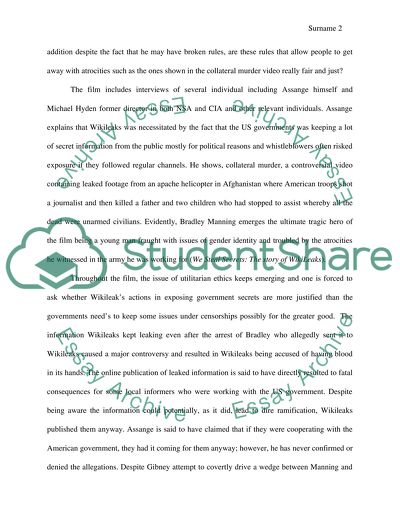Cite this document
(“Evaluation of the WikiLeaks video : We steal secrets. The story of a Term Paper”, n.d.)
Evaluation of the WikiLeaks video : We steal secrets. The story of a Term Paper. Retrieved from https://studentshare.org/philosophy/1487751-evaluation-of-the-wikileaks-video-we-steal-secrets
Evaluation of the WikiLeaks video : We steal secrets. The story of a Term Paper. Retrieved from https://studentshare.org/philosophy/1487751-evaluation-of-the-wikileaks-video-we-steal-secrets
(Evaluation of the WikiLeaks Video : We Steal Secrets. The Story of a Term Paper)
Evaluation of the WikiLeaks Video : We Steal Secrets. The Story of a Term Paper. https://studentshare.org/philosophy/1487751-evaluation-of-the-wikileaks-video-we-steal-secrets.
Evaluation of the WikiLeaks Video : We Steal Secrets. The Story of a Term Paper. https://studentshare.org/philosophy/1487751-evaluation-of-the-wikileaks-video-we-steal-secrets.
“Evaluation of the WikiLeaks Video : We Steal Secrets. The Story of a Term Paper”, n.d. https://studentshare.org/philosophy/1487751-evaluation-of-the-wikileaks-video-we-steal-secrets.


